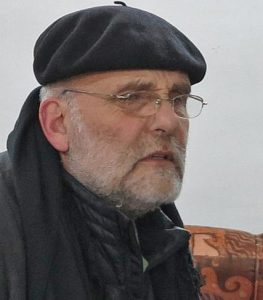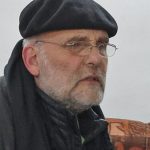ISTANBUL (Morning Star News) – The disappearance last week of an Italian Jesuit priest in Syria following the kidnapping of two other clergymen in April reflects the dangers Christians face in the war-torn country.
The Rev. Paolo Dall’Oglio, who spent three decades in Syria before the Syrian government deported him last year for helping victims of President Bashar al-Assad’s military crackdown, re-entered the country in late July. His mission, according to published reports: Implore leaders of the Al Qaeda-linked Islamic State of Iraq and the Levant (ISIS) in Raqqa to release hostages and to negotiate peace between Islamist militants and Kurds. He was reported missing on July 29.
His mission was dangerous but he had good relations with rebel groups, and his disappearance has prompted varied speculation, especially after Reuters reported that ISIS kidnapped him.
In the priest’s three decades in Syria he had labored to heal divisions between the country’s religious and ethnic factions. Abdelrazzag Shlas, an opposition activist in Raqqa, has said ISIS was angered by the priest’s condemnation of violence against Kurdish residents of Tal Abyad.
Dall’Oglio’s disappearance comes three months after the kidnapping of the Greek Orthodox and Syriac Orthodox archbishops of Aleppo. Paul Yazigi of the Greek Orthodox Church and Yohanna Ibrahim of the Syriac Orthodox Church were kidnapped near the village of Kafr Dael on April 22 while returning from the Turkish border on a humanitarian relief trip.
The abduction happened on the road to Aleppo from the rebel-held Bab al Hawa Province, where gunmen intercepted their vehicle and killed the driver. The clergymen’s fate is unknown.
Initially kidnappings of Christians in Syria were largely aimed at seeking ransom. But as Al Qaeda-linked groups established themselves in areas with sizable Christian populations, they began targeting Christians, threatening that they must convert to Islam or face rape, torture, murder and other aggression, said Middle Eastern Analyst Ahmad Majidyar of the American Enterprise Institute (AEI).
“In the case of the Italian priest, the Al Qaeda-affiliated groups may also have been upset at his message of inter-faith and inter-ethnic harmony in Syria,” he told Morning Star News.
Dall’Oglio had served at the Monastery of St. Moses the Abyssian before being deported and was largely responsible for its restoration.
In the abduction of the Syrian archbishops, Syriac Orthodox authorities identified the kidnappers as Chechens, part of the international assemblage of militant Islamists that have flooded into Syria to oust Assad and set up a hard-line government.
Foreign-origin Salafist and jihadi groups have joined the homegrown Syrian rebels. The Al Qaeda-linked al-Nusra Front is one of the strongest insurgent groups.
Christians Await Relief
Syrian Christians worry about the outcome of the civil war if groups such as these have a dominant voice in the county’s future.
Hundreds of Syrian Christians have been kidnapped since hostilities began in 2011, and thousands more have fled the country. Many have crossed over into Lebanon or Turkey, where they await legal or illegal means to reach Europe and obtain political asylum.
If a post-Assad Syria is dominated by Al Qaeda-affiliated groups, Christians will not be able to live or practice their religion freely, Majidyar of the AEI said.
“They would be given three choices: convert to Islam; leave the country; or suffer heavy punishments, including death and jizya, or the Islamic tax,” he said. “Even if Assad holds on to power, extremist Sunni groups are likely to maintain control in certain regions in the foreseeable future, and they will continue the persecution of Christian communities.”
Orthodox and Catholic Christians in Syria pre-date the Muslim presence, and also prominent in the country are the Greek Orthodox, Syrian Orthodox, Armenian and Assyrian churches, according to Operation World.
One analyst noted that the mix of religion and politics in Syria makes determining motives for kidnapping complex.
“The archbishops captured earlier this year were members of groups that were allied with the regime,” Kevin Newton, an analyst on Middle East social and political issues for Habbibi Consulting, told Morning Star News. “In the Middle East mindset, religious affiliation is much like we would regard membership in a political party.”
In the alleged kidnapping of Dall’Oglio, Newton added, the motive would have differed, as Al Qaeda may have sought to silence a voice that would “untangle some of that knot of religious affiliation and political viewpoint.”
Christians have been vulnerable since the beginning of the civil war in 2011 that has left more than 100,000 people dead, according to the United Nations. Unlike other groups, Christians do not have armed militias to protect themselves and are scattered across the country.
Rebel militias reportedly murdered Catholic Syrian priest François Murad on June 23. Islamic extremists abducted the Rev. Michael Kayal, 27, of the Armenian Catholic Church in Aleppo, as he rode a bus in February. Greek Orthodox priest Maher Mahfouz was also kidnapped. Syrian Orthodox priest Fadi Haddad, trying to negotiate the release of a kidnapped parishioner in Qatana, was himself kidnapped and killed last December.
Christians are caught between the opposition National Coalition and Assad’s government. For many, the worst prospect is the rebels taking power as a main fighting force, Jahdat al-Nusra, is an extremist group with an ideology similar to Al Qaeda. Such groups are global in nature and not answerable to the Syrian National Coalition or any regional country. Thus appeals from these groups fall on deaf ears.
The civil war evolved out of 2011 Arab Spring protests against the Syrian Ba’ath Party and decades-long rule of Assad’s family. After troops fired on protesters, these slowly changed into an armed opposition.
Assad family members are Alawites, a Shi’ite Islam sect that makes up only 12 percent of the population. They have marginalized Sunni Muslims, which make up three-fourths of the population, leading to sectarian resentment. Many analysts worry that such pent-up tensions will lead to a long, bloody insurgency similar to the Iraq War.
###
© 2013 Morning Star News. Articles may be reprinted with credit to Morning Star News.
Morning Star News is a 501(c)(3) non-profit corporation whose mission is to inform those in the free world and in countries violating religious freedom about Christians worldwide who are persecuted for their faith. For free subscription or to make tax-deductible donations, contact [email protected], or send check to Morning Star News, 24310 Moulton Parkway, Suite O # 157, Laguna Hills, CA 92637, USA.
- Italian Jesuit priest Paolo Dall’Oglio.



Speak Your Mind